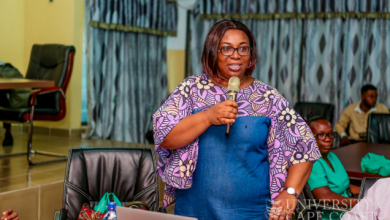Access to mobile phone policy: An elaborate argument in support of Dr. Bawumia

It is perplexing that individuals affiliated with the NDC struggle to grasp Dr. Mahamudu Bawumia’s visionary policy proposals. His strategy to enhance mobile penetration and achieve digital inclusiveness by ensuring every citizen owns a smartphone is ground-breaking.
This is not a novel concept; it has been successfully implemented in advanced countries and extended to other commodities such as vehicles and computers. Why shouldn’t Ghana adopt a tried and tested policy that has proven benefits?
Consider the policy to build a credit system based on individual credit ratings. This is a fundamental aspect of financial systems in developed nations. Ghanaians living abroad can attest to its effectiveness. Such a system would empower citizens to borrow and repay loans, fostering economic growth and personal financial stability. If this works in advanced economies, why can’t it work in Ghana?
When Dr. Mahamudu Bawumia urged citizens to register for the Ghana Card to enable digital identification, the NDC advised its members against it. Ironically, former UK Prime Minister Tony Blair is now advocating for similar policies to be implemented in the UK (source).
This digital identification system is crucial for modern governance and service delivery. The opposition to such a beneficial initiative seems baseless.
Moreover, Dr. Bawumia’s leadership in implementing mobile money interoperability was met with skepticism. Yet, this innovation has significantly boosted financial inclusion, allowing mobile accounts to function like bank accounts. Users can even earn interest on their balances. This success story is now being emulated by other nations, including the UK, where the Labour Party has proposed similar financial systems.
If advanced countries are now implementing policies that were pioneered in Ghana under the guidance of Dr. Mahamudu Bawumia, why shouldn’t he continue to introduce policies aimed at enhancing digital and financial inclusion? His policies are not only top-notch but also well-thought-out and address both current and future challenges. The resistance from the NDC seems more political than practical. Embracing these progressive policies is the logical step forward for Ghana’s development.
Kojo Monney
Assistant Secretary, WNR




